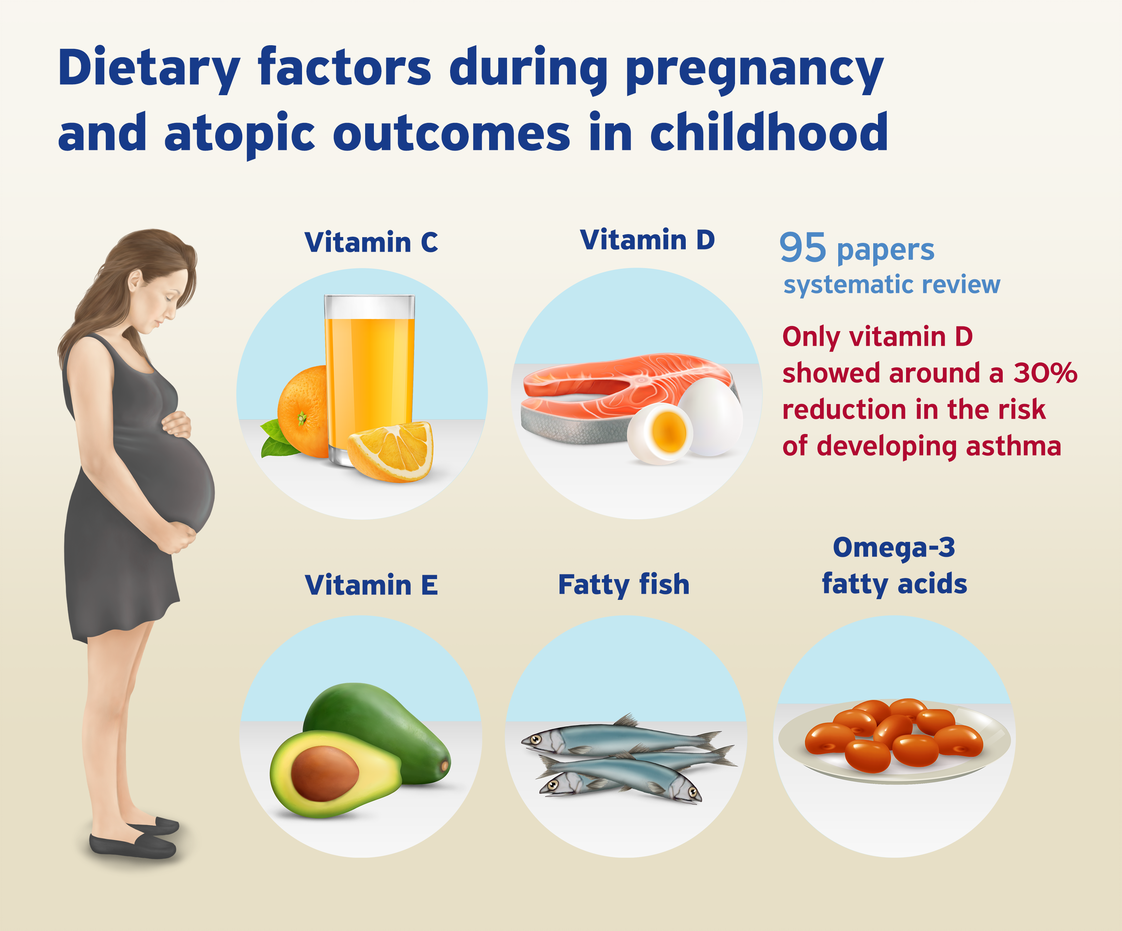We decided to investigate the evidence that what the mother eats during pregnancy, influences whether or not her child will develop allergies such as asthma, eczema, hay fever or food allergies. We wanted to address the question if changes in the diet of the pregnant mother could reduce subsequent onset of allergic diseases in the child.
In order to investigate this, data from 95 recently published papers was summarized. These publications either related nutritional differences in pregnant mothers’ diets to how common allergic diseases were in their children (observational studies) or assessed the effects of randomly assigning pregnant mothers to different dietary supplements (Randomized Controlled Trials, or RCT).
The results from the observational studies covered a vast range of maternal dietary factors including copper, vitamin C, vitamin E, calcium, zinc, beta carotene, magnesium, manganese, dairy/probiotic containing foods, Mediterranean and Western diets, soy, fish and nuts.
In summary these studies provided no conclusive evidence on whether the mother’s diet when pregnant affects the development of allergic disease during childhood.
Focusing on the RCTs, supplementing the diet of pregnant women with vitamin D, vitamin C, vitamin E, omega-3 fatty acids or fatty fish, we found that only vitamin D showed around a 30% reduction in the risk of developing asthma. The doses given to the pregnant women covered a wide range but were higher than recommended in most countries.
As a result, no recommendations about what pregnant women should eat or which supplements to take, to prevent their child from developing allergies can be made at this stage. Further studies should be performed, using standardised methods focusing on the total diet rather than one nutrient, measuring dietary intake carefully to measure exactly what pregnant women are eating and carefully defining the characteristics of each woman. In this way a clearer analysis of personal characteristics that influence the individual response to dietary factors can be obtained. These studies will then hopefully provide the necessary information to give personalized nutrition advice focusing on the individual and different allergic diseases of the lungs, gut and skin.
Read the full paper here

